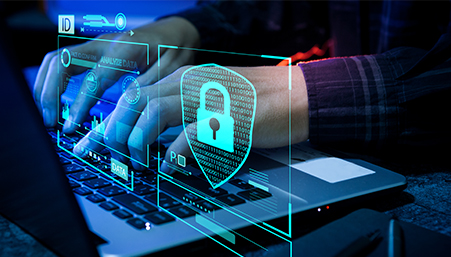Everything you need to know about VPNs

Internet privacy is an increasingly important discussion, and there is no better time to ask whether or not you have a secure wifi connection than now. Have you ever wondered who can see your internet usage and how? Whether it's confidential corporate data, streaming, or just googling your general interests and hobbies. Your data and internet connection are not necessarily safe. To find a more private and secure internet experience, many people opt for VPNs to ensure broadband internet security.
What Is A VPN? What Do I Use It For?
VPN is a short form for 'virtual private network'. It encrypts the wifi connected to a device and, through this, gives you a secure internet connection. It is used for many reasons, be it hiding sensitive data from being exposed or monitored, accessing different media that might not be available in your country, or simply having safe wifi connection security.
How Does A VPN Work?
A VPN encrypts your internet connection, resulting in privacy and security. Because the wifi connection is secured from your device, it remains private through traffic. This means that no one can identify the true location of your wifi connection, keeping you safe from prying eyes.
What are the benefits of using a VPN?
A VPN has many benefits. Primarily a VPN provides a secure internet connection, regardless of your internet service provider.
- It hides your personal information as you surf the web for increased security, such as your location, IP address, wifi service provider, etc.
- It helps you avoid data caps (limits on the amount of data transferred in a particular period of time) that your wifi service provider might have added.
- It helps you access content from different geographies that might not be available in your country.
- It can help you avoid censorship bans when you are travelling or within your own country.
What are the different types of VPNs?
There are broadly 4 kinds of VPNs, remote access and site-to-site. Here are the differences are between them:
How do I find the best VPN for me?
VPN options change based on your needs. If you need a VPN for a corporate reason, you should get a professional VPN specifically designed for offices with multiple login points that feed into the same network. However, if you need a VPN to bypass certain regional restrictions, any standard VPN that can be found on the App Store/ Google Play Store or Chrome Web Store will do. In short, there are many different VPNs, and you might have to experiment with some to find the best one.
Click the link, If you're looking for more information on wifi connection security
